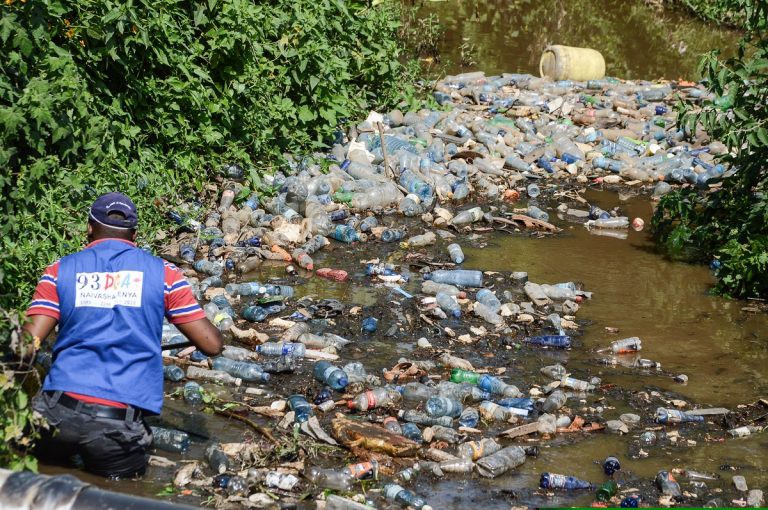The ban on the plastic bags that came into effect in 2017 has already restored sanity with regard to environmental hygiene in the country in terms of cleaner towns and markets.
Contrary to the past years when streets in urban centres like Migori were chocking with plastic bags, the towns can now be described as free of dirt with every dweller embracing the use of environmentally friendly bags.
More responsible Kenyans on shopping missions are careful enough these days to have only re-usable carrier bags, thus reducing the amount of litter dropped on the streets.
Previously, those with an urge to eat fruits like bananas, oranges and pineapples got them wrapped in polythene bags which they carelessly discarded on the way after munching the fruits.
The result was the scattered hundreds of white papers that became an eyesore and environmentally degradable items in towns, markets and villages.
But while the plastic bags menace is done with, there has emerged a similar problem posed by the plastic bottles that is fast becoming a serious environmental killer especially on the side of lakes and rivers.
The plastic bottle waste has become a serious environmental challenge in many parts of the country that wananchi are now calling on the state to make an urgent pronouncement with a view to opening a serious war against them.
“We are fully in support of them being banned like we have witnessed with plastic bags,” said Mr Collins Owino, a teacher in one of the Migori Schools.
Owino, a resident of Migori town, however asked National Environment Management Authority (NEMA) officials to direct their efforts to educating the masses on the best way of handling the thousands of the plastic bottle wastes finding their ways in homes, town estates and streets.
“The plastic bottle wastes are bad and nobody should oppose their ban if Kenya is to hit the recommended global environmental standards,” he added.
On his part, Mrs Margaret Ghati says the desire for job opportunities should never override the quest for a clean environment and the government and Kenyans must not be scared by massive job losses due to closure of factories manufacturing plastic bottles.
“There cannot be up to date work performance when one’s health standards are compromised by a poor environment. Plastic bottles block drainages, lead to flooding and the end-results are waterborne diseases among others,” she argued during an interview with KNA.
But Ghati wanted the ban executed in a more organised way that would not affect the rights of Kenyans such as arrest for being in possession of an old plastic bottle.
Let the non-degradable plastic bottles disappear gradually by effectively blocking their sources so that those that have already hit the market can be dispensed with to give those who purchased them a chance of not losing a penny.
Migori Chamber of Commerce and Industry office led by its chairman Samuel Rumo said it would support the ban if declared and asked its members to fully support the spirit by avoiding to handle the non-degradable bottles in their shops.
“We are asking the business community to fully embrace the best alternative for plastics so that we can help the country protect its environment like Rwanda,” Rumo said.
Migori County NEMA office says they are aware of the problems posed by the plastic bottles in the local environment but can do nothing because they have not been declared illicit by the state.
County Director of NEMA James Siaji admits that the bottles were becoming a big problem to the general environment and especially Lake Victoria and Rivers Migori and Kuja.
“The aquatic life in these water bodies is being threatened greatly as well as the drainage systems in towns and markets that are being clogged leading to serious flooding during heavy rains,” he said.
By George Agimba





